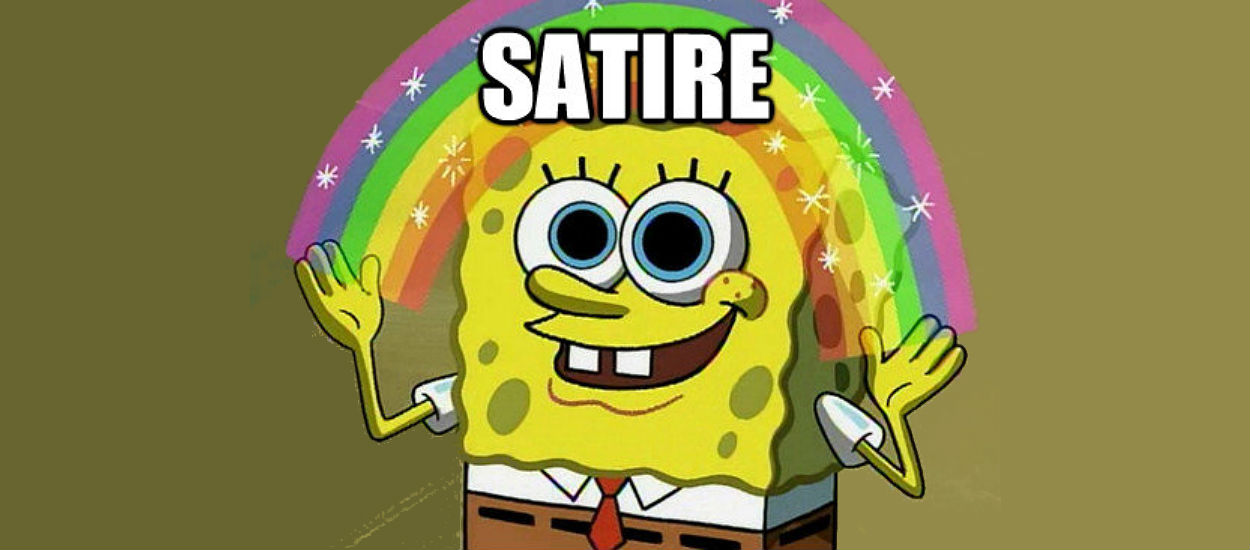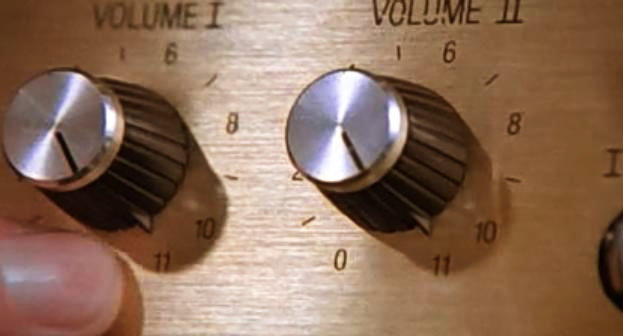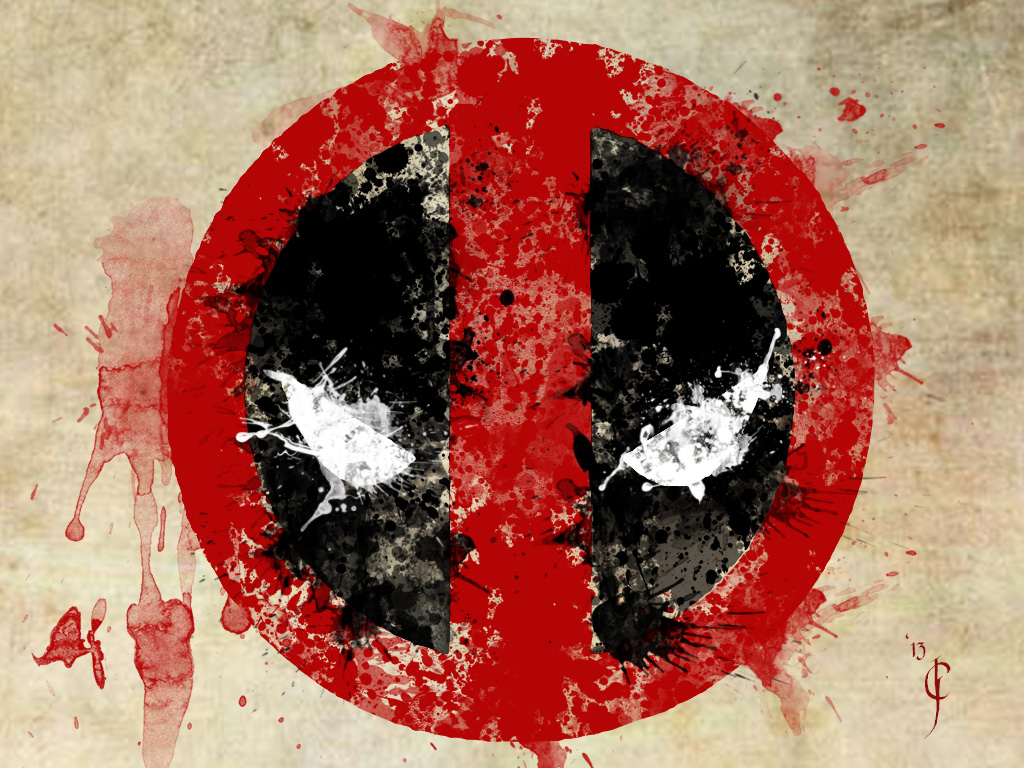Satire is simultaneously one of the most pervasive forms of comedy and also one of the least understood. It’s easy to assume that satire is the same as parody, but that’s not really what satire is. It’s may seem that any time comedy is making fun of somebody, the writer or performer is being satirical, and that’s not the case either. Satire isn’t always about a person and ironically enough, it doesn’t have to be funny. Satire instead, is a form of argument. Yes, it’s a rhetorical style used within the context of something else. You can have a sci-fi novel full of satire, or a short story dripping with it. A comedy routine can be constructed with satire holding it all up, and an essay can be written that is soaked in it. Something that is true no matter how you take your satire, it is available in both razor sharp and violently blunt flavors and both can be delicious.
But what is satire really?
Satirically Attired
Well before we can get into all of the joys and dangers that satire has to offer, we first need to explore what exactly satire is. First of all, satire is not just making fun of something for its own sake. Instead, it is a method of making the subject of derision ridiculous by accepting their own argument at face value. In other words, if you take the views of something and work them to their insane, yet logical, conclusion you are working within the realms of satire. So for example, Jonathan Swift was using cutting satire when he wrote A Modest Proposal. In that he breaks down why poor Irish should literally eat their children, and goes into the specifics of how large of a family can enjoy the nutritional value of just one fledgling Irishman. In the essay (and it’s great, go read it) Swift takes on the depraved viewpoint of a member of the English Upper Class and turns it up way past a level that people actually have. By doing so he undermines the English while creating sympathy for his native Irish.
Another way to think of it, is that satire really does its best work when it’s deep into the realm of the absurd. If a piece has turned the argument up to 11 it’s probably making a satirical point. So something like This Is Spinal Tap takes the self serious nature of the rock and roll documentary, and makes the main characters idiots. The joke is that the audience is spending a lot of time with people whom, if they weren’t in a band, you would avoid making eye contact with. Like Swift, when Rob Reiner takes an idea and follows it along far enough the idea is shown to be flawed. The humor reaches its peak when the 2 sides of logical absurdity and formal structure combine in a way that doesn’t make any sense.
Not all satire is cut from the same cloth of course, and like most concepts from classical antiquity there’s both a Greek and a Roman flavor. Both styles have the same purpose, which is to take something and make it the target of derision and scorn, but the way that they do that is different enough to make these the 2 default categorizations.

Ode To A Grecian Burn
The Greek version is called Horatian Satire. If you are looking for a softer, kinder satire, this is what you want. Generally speaking Horatian Satire is more about finding what’s funny in human beings as a whole. So the sort of reaction somebody gets from this kind of satire is to smile and nod, because there will be something that they relate to. Usually, these satires are structured in more of an amused tone. So an example might be something along the lines of “Hey, did you ever stop to really think about why ______? That’s weird right?”
Some examples of Horatian Satire would be the works of Rob Reiner, such as This Is Spinal Tap, A Mighty Wind, and even though it is based on a satirical book, The Princess Bride. In these works Reiner is more about playing with the absurdities of the genres he’s using and what they say about people in general. Similarly, Terry Pratchett works in this mode. In his Discworld novels, while the genre is nominally fantasy, the individual stories are often methods to satirize contemporary issues. This includes sports like in Unseen Academicals, to the concept of fairies in Lords and Ladies, and police and use of force in the Night Watch books. In all of those examples, the idea is to poke fun at a topic and give a sly nudge to people “in the know.”
Rhetorically Stabbing Westward
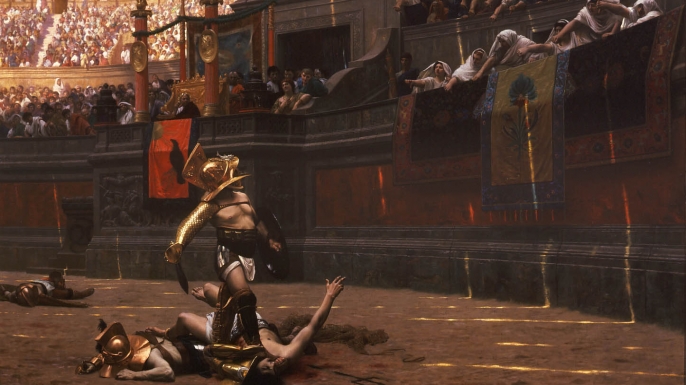
Like most things Roman, the Juvenalian style of Satire is brutal. Unlike the gentler, kinder, Horatian Satire, this kind is about taking somebody or something the hell out with extreme prejudice. It’s not so much about poking fun and making puns as it is about pointing and saying, “Look at that asshole,” with a sense of righteous indignation and very thinly veiled contempt. Now don’t take me to mean that Juvenalian satire dances in the magical fallacy meadow with ad hominem. It is more than happy to take the piss out of organizations, pastimes and beliefs too. After all, A Modest Proposal is really about making fun of the world views of a certain class of people in an attempt to undermine it. He wasn’t saying, “Isn’t it weird that English people think that way?” Instead he’s saying, “This is an exaggerated example of a way people’s thought process works. Fuck those people.”
A more modern example of this type of satire would be in something like The Daily Show or This Week Tonight. In both cases they look at the issues of the day, the people and groups involved, and then proceed to mock them relentlessly. The key part of the satire is that it is full of indignation. It’s not just that their subjects are wrong, but “How dare they hold such a repugnant viewpoint?” The Daily Show in particular is very good about interviewing people and pushing to find the boundaries of their subject’s beliefs and opinions. What turns out to be illuminating and really funny is when their subject willingly discovers the extreme conclusion left in the wake of their own beliefs. Juvenalian satire doesn’t so much prove the opposite, but instead let’s an argument cannibalize itself rhetorically.
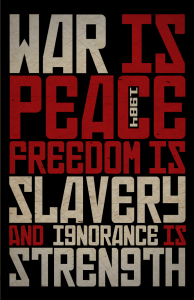
While he’s not always the first person to come up, George Orwell was a satirist in the Juvenalian tradition. 1984 is a satire of fascism and communism. The fact that it’s not terribly funny leads many people to believe that it is not. But that book is filled with anger at what society could be capable of doing to its people. Orwell just started with the perfect ideals of fascism (a strong leader, unrepentant nationalism) and Soviet style communism (state ownership of property, control of the media, party membership) and imagined a world where they got everything they wanted. He just asks the reader to consider if such a world is worth living in. Since the answer for sane people is a resounding, “Hell’s to the no,” 1984 becomes a savage critique of those forms of government.
Razor’s Edge
The danger of satire is that it tends to be cathartic instead of being a call to action. TDS does Juvenalian satire, and goes in depth to perform brutal satire on different organizations and people. But when people watch it, at the end they nod knowingly because they appreciate the joke. “Somebody gets it,” they think to themselves, but any compulsion to do anything about the issues at hand are lessened. By turning their mutual target into a joke, the perceived threat of said target is diminished while doing nothing about the actual threat. Basically, satire can act as a salve to soothe the itchiness of reality.
Much of this has to do with the rhetorical style that satire is a part of. A good argument (and make no mistake, satire is a form of argument) should offer up a solution to a problem, especially if the argument is persuasive in nature. A lot of satire doesn’t care about offering up a solution so much as taking down a subject. In A Modest Proposal, Jonathan Swift doesn’t really offer a solution, and the plan he does offer is purely a way to mock people that may have held vile views about Ireland at the time. The satire is more about tearing things down than building anything up.
Of course, this isn’t always the case. South Park is an example of Juvenalian satire that often manages to find a way to make constructive commentary at the same time. Much of this has to do with the fact that South Park is happy to gleefully slice up anything with their rapier sharp satire. This in turn means that there is no alternative left to look better by comparison. Instead the episodes will often end with, “You know, I learned something today,” after both sides of an argument are made to look like assholes, and it’s here that South Park is able to find a middle ground. Often that middle lies in tolerance and moderation. In the world that Trey Parker and Matt Stone have created, the greatest danger is anybody thinking that their rights are worth more than other people’s, and being a douchebag about it.
In the end though, satire is really about making a point and having fun. It’s a lot easier to write an essay to frame an argument, but more people will enjoy the satire. They’ll talk about it more, and internalize it. Just remember that when it comes to satire it’s important to smile if the joke is ever on you.

